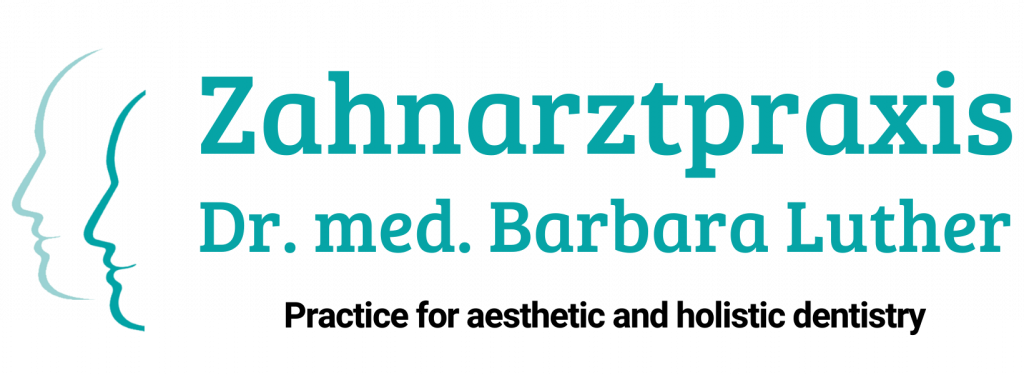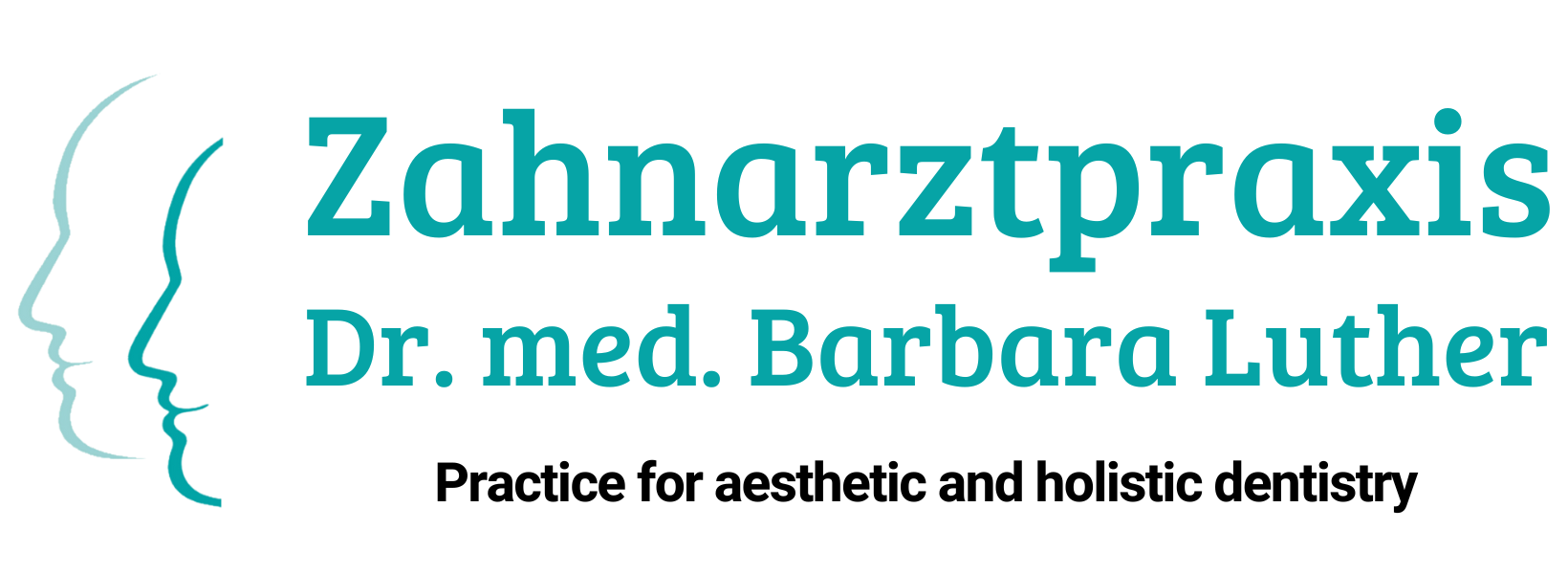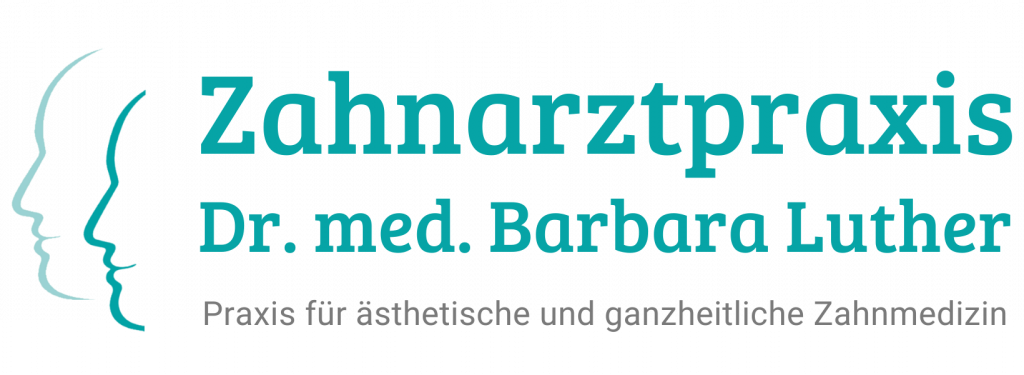PZR + gum treatments
PZR
From kindergarten age - for life!
In my dental office, individual professional teeth cleaning has a very high priority, because
- it prevents damage to the teeth, the periodontium and the entire oral cavity and is essential for optimum oral hygiene,
- in turn also has an influence on other general medical conditions,
- it saves you toothache and ultimately also treatment costs.
- enables a caries-free life
Well-kept teeth are a sign of attractiveness and a healthy attitude to life.
Professional guidance and treatment will show you how to maintain your dental health and how to get there again.
Together, you, your child and our prophylaxis team can ensure that your teeth and gums stay healthy. Prevention is always better than healing!
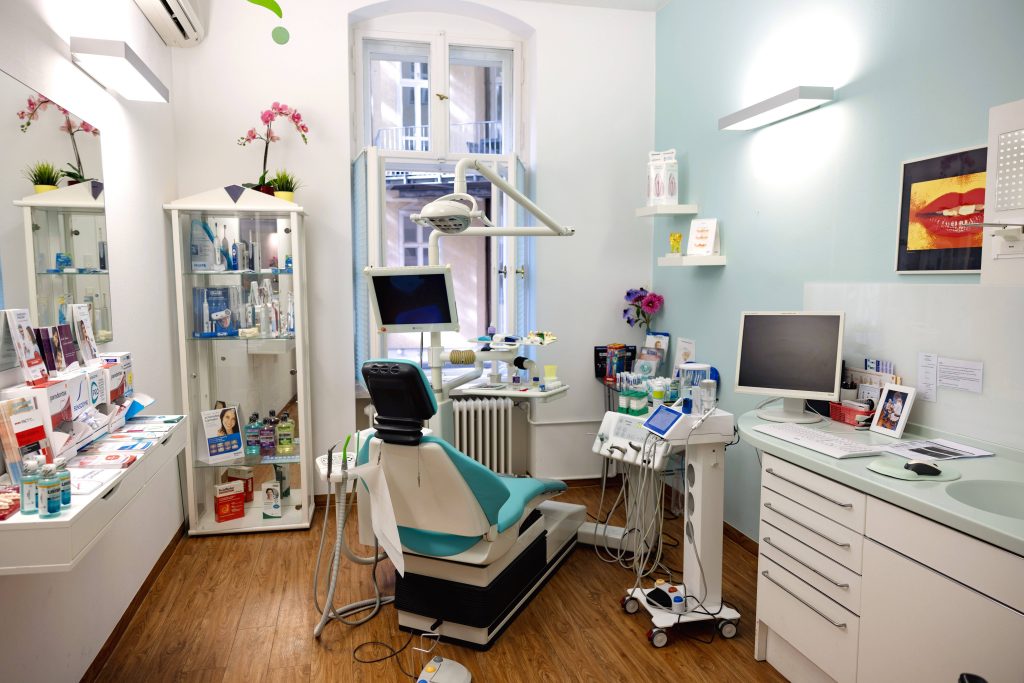
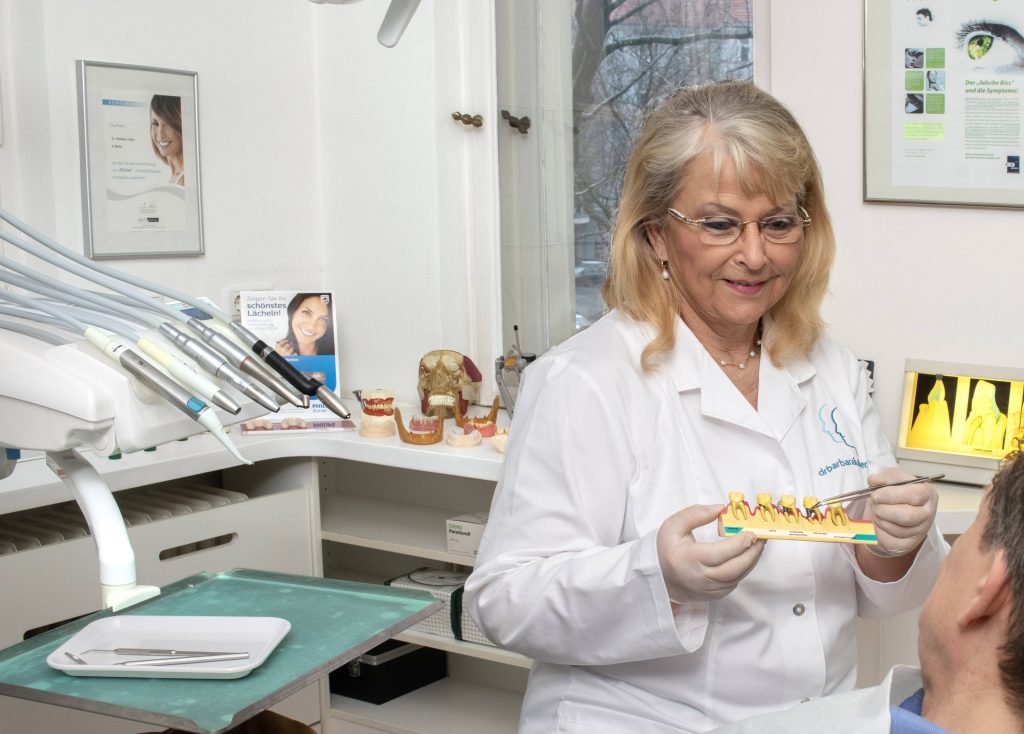

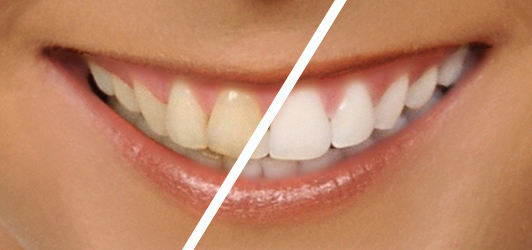
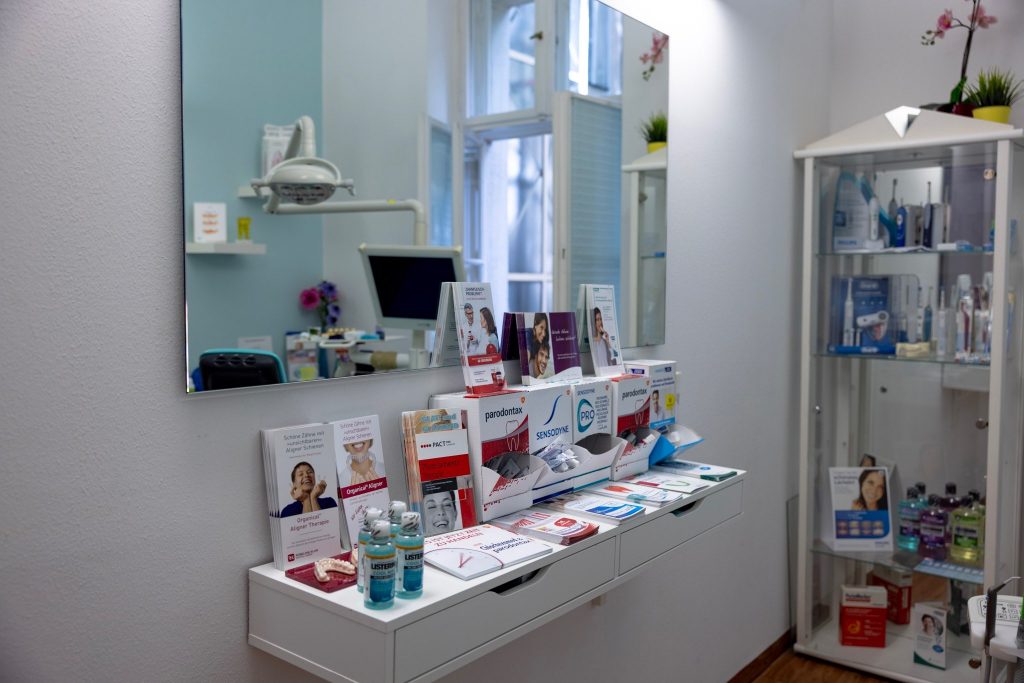
“A smile can enchant the whole world.”
Professional teeth cleaning - for young and old
Successful professional tooth cleaning (in short: “PZR”) requires your cooperation and motivation. The instructions learned and practiced in the treatment training should be consistently implemented and continued by you at home.
The PZR consists of various complex treatment blocks, which we tailor to your individual needs (for adults as well as for our children!).
This includes:
- Removal of hard plaque, professional cleaning of interdental spaces (sometimes also airflow in particularly hard-to-reach areas), instructions for the right care for you, handling with the right cleaning equipment for you,
- education about caries, periodontal disease, pockets, tooth loosening, cleaning techniques, bleeding, tests to determine the risk of caries, the bleeding index,
- Fissure sealing (especially for children from the first permanent molar),
- Saliva tests, oral hygiene status, germ count reduction, special prenatal care,
- Nutritional advice, early detection examinations, local fluoridation in the dental practice and also at home with a fluoridation splint (which may be necessary for children with orthodontic treatment, for example, due to the formation of niches when wearing brackets). It is used to harden tooth enamel and prevent tooth decay.
As you can see, the PZR includes a wide range of services that are tailored to your personal situation and also to your age.
Under my supervision, the PZR is offered, carried out and monitored by professionally trained staff.
You will receive a questionnaire specially tailored to your oral situation before the treatment begins, so that we can address your wishes and problems in advance.
The success of the PZR measures can also be measured objectively in our practice:
The initial condition and any changes that occur during the course of treatment are documented and thus well controlled and observed. This results in remotivation discussions and the decision as to how often you should come in for your teeth cleaning.
The costs of the PZR and the sealing of the large molars are covered by statutory health insurance from the age of 6 to 18. For adults, depending on the insurer, only private health insurance companies cover these costs.
If you have any questions, we will be happy to advise you and are available for a personal consultation.
Airflow
The so-called blasting procedure is used particularly in prophylaxis, i.e. in individual professional teeth cleaning. A special device or a blasting gun attached to the dentist’s chair is used.
The prophylaxis assistant can use it to gently remove color deposits (e.g. from tea, coffee, red wine, tobacco, etc.) in particularly narrow spaces, pits or fissures. The natural tooth color is restored and the tooth surface feels extremely smooth and clean. Airflow is also a suitable preparation method for bleaching.
Are you interested? Make an appointment! We will be happy to help you achieve clean, smooth teeth with a wonderful feeling of well-being!

Dentcoat
DENTCOAT is a procedure that helps you to remineralize your tooth enamel. After application, it has a plaque-repellent effect and this ensures that fewer inflammatory processes occur in the gum area, i.e. the signs of periodontal disease are considerably reduced. It also has a very good side effect: DENTCOAT has an anti-caries effect!
Remineralization strengthens your tooth enamel. The sensitivity to pain is reduced and the teeth get a new shine!
You will be able to feel this very well with your tongue.
The DENTCOAT treatment also helps you to achieve soft whitening, i.e. the teeth get a brighter shine.
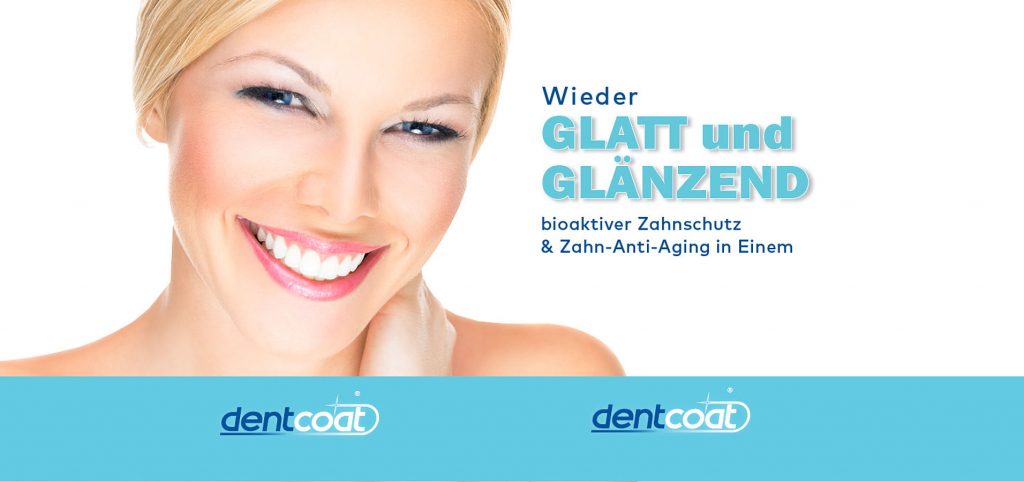
DENTCOAT ...
… consists of liquid silicon dioxide, which is also found in nature (e.g. as quartz). It has a bioactive formula which stabilizes the tooth enamel and makes it more resistant.
When is DENTCOAT used?
- enamel strengthening and soft whitening – fantastically smooth surface feel
- Caries and erosion protection
- for desensitization – the teeth become less sensitive
- Caries protection, e.g. for orthodontic treatments
- Prevention of periodontal disease and tooth decay due to the resulting acid protection
- Plaque and inflammation reduction, also on implants
- Protection and desensitization of bleached teeth
Dentcoat is the perfect tooth anti-aging in one !!!
Talk to us!
PA treatments
Gum pocket treatment (PA)
This is a disease of the jawbone and its surrounding tissue structures. In the long term, this can lead to tooth loosening and even tooth loss. Bacterial plaque accumulates in the tooth niches, which later develops into tartar, which in turn promotes the accumulation of soft plaque and maintains the inflammation of the gums.
Today, a variety of early detection methods are available that make it possible to recognize and treat the onset of this disease in good time. The initial stage of such a disease can be cured without major consequential damage. In the next stage, so-called pocket formation occurs, which is caused on the one hand by the breakdown of jaw bone in the root area of the tooth and on the other hand by the detachment of the gum from the tooth.
In Germany, the Periodontal Screening Index (PSI) is crucial for the early detection of this type of disease. The depth of a pocket can be measured using a suitable measuring instrument. Such a pocket is caused by bacteria in the plaque and leads to inflammation; the gums bleed when touched.
Early detection is also important because as the disease develops and becomes more severe, treatment becomes more complex, longer and more difficult.

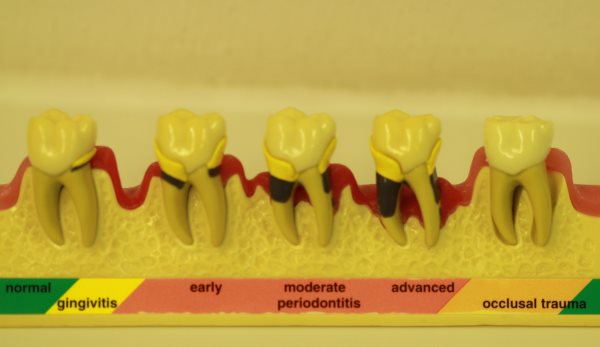




Inadequate oral hygiene, smoking and poor diet are the main causes of periodontitis. Furthermore, the oral cavity flora is influenced by general diseases such as diabetes, AIDS, vascular diseases and their consequences, such as heart attacks and strokes. Periodontitis is one of the most common causes of tooth loss. This disease also has an enormous influence on the links between diabetes, cardiovascular diseases, joint diseases, rheumatism, premature births and low birth weight.
The risk of developing the disease increases with age, with around 75% of the population affected.
This disease usually progresses gradually and initially without any significant symptoms for the patient. Therefore, systematic dental examinations are essential to detect and treat this disease at an early stage.
At the beginning, there are 2 – 3 sessions of prophylaxis and possibly a full-mouth therapy.
The starting point for the subsequent treatment is established here and patients learn how to maintain the condition established by the subsequent medical treatment at home.
The application and approval by your health insurance company guarantees that the corresponding main medical treatment and subsequent follow-up treatment will be fully covered.
You will receive a private agreement in advance of the treatment for any necessary services that are not covered by your health insurance.
Gum treatment / periodontal treatment
Closed curettage
The hard plaque below the gum line (not visible) is removed manually and mechanically from the pockets under local anesthesia. If possible, this treatment should be carried out in one or at most two sessions.
Accompanying measures such as laser and PACT can be used. This is also often used in the post-treatment phase.
Open curettage
As the depth of the gum pockets increases, so does the number of bacteria present, which are also released into the entire body, thus increasing the risk to the entire organism.
In these deep bone pockets, the gums are also opened under anesthesia and the pockets are cleaned under vision. The roots are cleaned and polished (additional drug therapy may be required).
Subsequent close recall during prophylaxis is absolutely essential.
Gum treatment causes the gums to reattach tightly to the tooth structure and makes it more difficult for bacteria to penetrate again. This condition is then continuously monitored and maintained by the individual prophylaxis treatment and corresponding individually defined intervals.
There may also be accompanying measures such as laser, PACT treatments and PRF procedures (covering bone defects with bone replacement materials with membranes). These and other special medications are used to stimulate the bone to regenerate.
This can also often be used in implantology.
The latter procedures are not covered by health insurance.
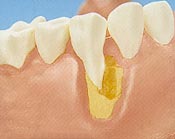

Other treatments in the area of the gums are:
- Lip, cheek and tongue tie removal
- Coverage of caries-free tooth neck areas
- Oral vestibuloplasty
- Removal of fibromas (e.g. gum growths caused by irritation from an ill-fitting denture)
- Gingivectomies (the excess gum is removed with the help of a laser to reduce the gingival pocket, e.g. in the case of excessive gum formation, asymmetrical gum line, etc.)
If you have any questions, we will be happy to advise you and are available for a personal consultation.
Aftercare
This phase includes a precise check of the treated gum condition and instrumental follow-up treatment. This is followed by rinsing to disinfect the mouth. Consultations on maintaining the treated condition at home are carried out again. A final status is also recorded to compare the original findings.
